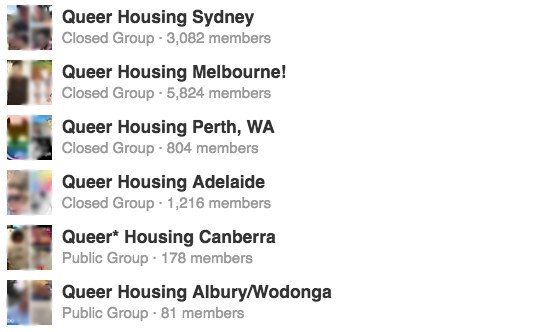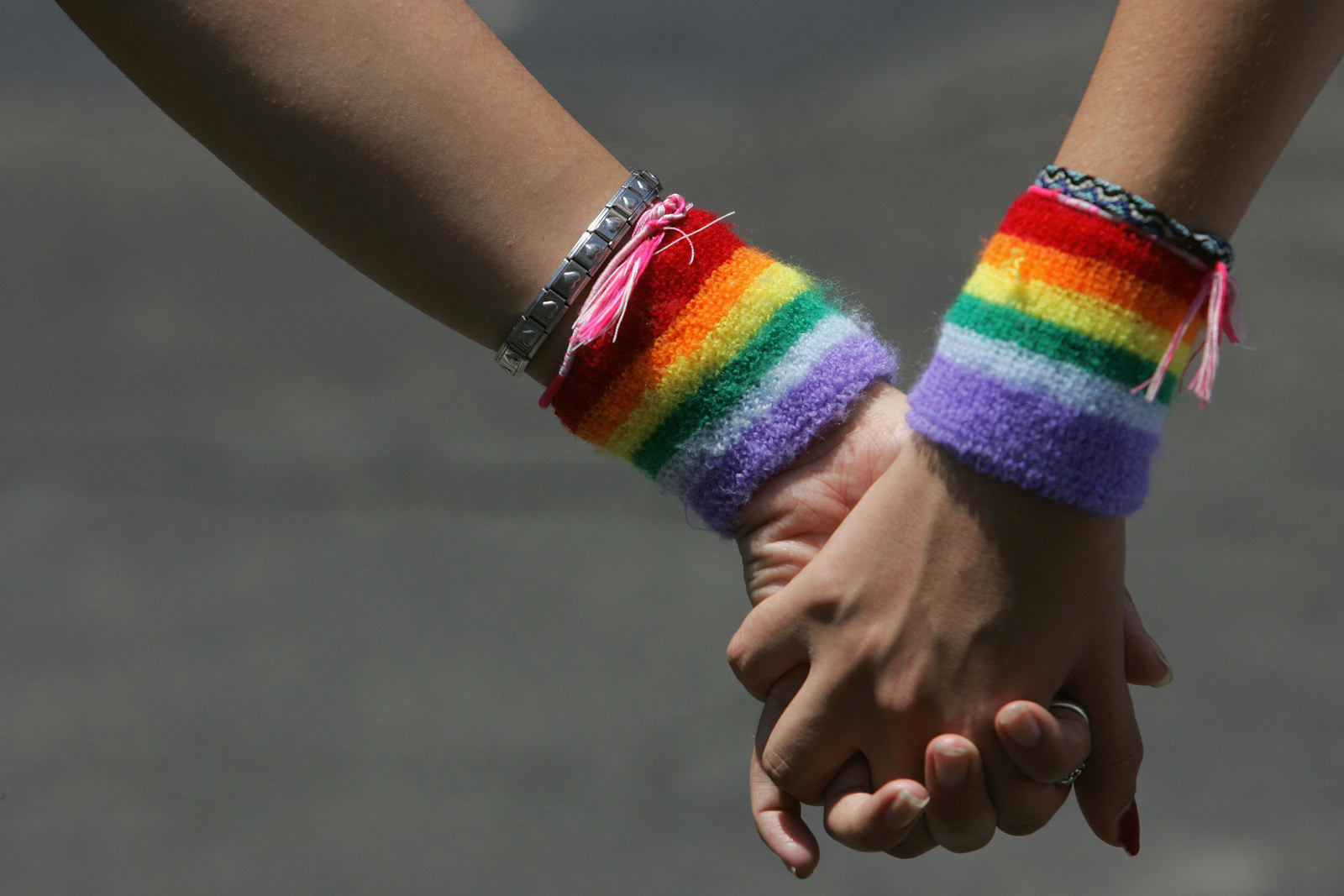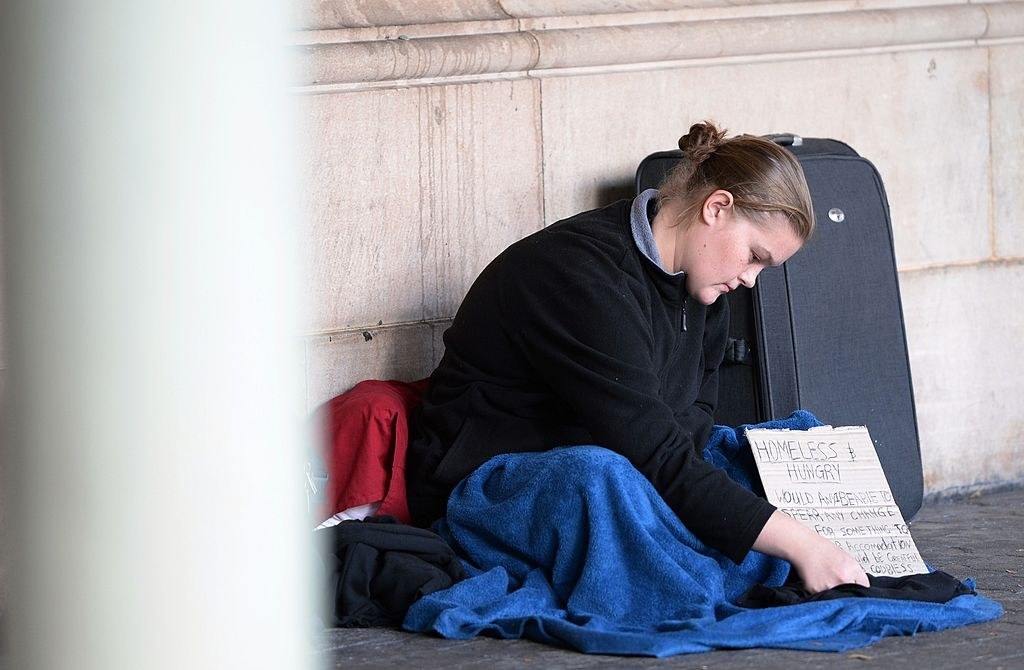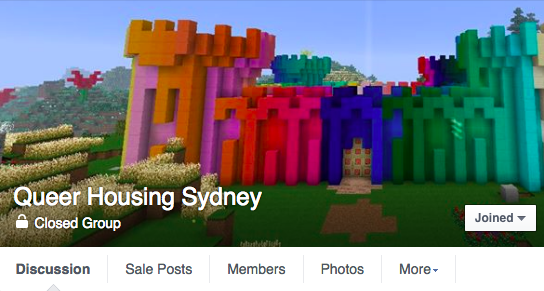When Jeremy Bridie and his best friend Jasper were searching for a house, they didn’t think their sexuality would be an issue.

In mid-2015, the pair were perusing a Sydney sharehouse group when they saw two rooms going in an "amazing" Newtown pad.
They set up an interview with the housemates – two girls, one guy – and crossed their fingers that they’d get it. But Jasper, a gay man and professional drag queen, had work right after the interview and so turned up in costume.
“[Jasper] turned on the charm and the two girls were absolutely enthralled by him. Everyone was chatting and laughing and having a good time,” Jeremy, who is bisexual, told BuzzFeed News.
“Everyone except the guy. He was quiet and stoic the entire time. [He] didn't say much, just kind of stood to the side whilst we did the tour and interview. I just put that down to him being a bit shy.”
A few days later, one of the women rang Jeremy to let him know they had chosen someone else. She said Jeremy and Jasper were her first choice, but the guy had vetoed them.
“It kind of dawned on me. I asked ‘Is it the gay thing?,'” said Jeremy. “She paused for a second and told me it was.
“He'd just flatly stated he didn't want two queer guys in the house and left the two female housemates utterly shocked.”
Increasingly, LGBT people like Jeremy and Jasper are turning to “Queer Housing” groups on Facebook to find housemates they trust will be accepting.

The groups have cropped up across Australia’s biggest cities and beyond – Sydney, Melbourne, Perth, Adelaide, Canberra, Albury-Wodonga.
Admins say they fill a crucial gap between underfunded emergency service providers and generic house-hunting websites, where LGBT people might end up with people who seem friendly but don't accept their sexuality or gender.
After joining the Queer Housing Sydney group, Jeremy and Jasper found a place to live that welcomed both of them within 24 hours.
Adelaide woman Shaylee Leach started the Queer Housing Adelaide group after experiencing “secondary homelessness” – bouncing between friends without a stable roof over her head.
“Temporarily moving in with my family as a buffer to find a new household has never been an option for me, as they live three hours away in a regional town and we don't get along so well,” she told BuzzFeed News.
“I was sleeping on a bedbug-infested mattress in my friend's lounge room feeling embarrassed, grateful, and like a burden.”
After coming across people who were turned off or confused by terms like “LGBT” on Gumtree and generic groups, Leach started Queer Housing Adelaide in October 2014. It’s since grown to over 1,200 people.
The higher rates of mental illness and unemployment experienced by LGBT people can make house hunting difficult, said Leach.

“We have all these compacting issues without even also looking at the stereotypical but often truthful scenario of the queer kid being kicked out of home.”
But there’s a positive side to the Queer Housing communities, too.
“I think people want to access a sense of community, and build that into the fibre of their homes,” Leach said. “They want to build beautiful, glittery safe havens together where they can share midnight snacks and conversations on the kitchen floor.”
Brett Paradise, director of Sydney LGBT youth charity Twenty10, told BuzzFeed News young LGBT people are disproportionately represented in the homeless youth population.

It's hard to get an exact number as Australian homelessness data collection does not include questions on sexuality and gender diversity. But anecdotally, said Paradise, LGBT people are at high risk.
"People are often leaving home early to address their identity," he said, "whether it’s because their family isn’t supportive, or because they didn’t feel comfortable being able to address their own identity within their home environment. Often school is disrupted early due to bullying.
“I don’t want to paint a picture that just because you’re LGBTIQ you’re going to be homeless or unemployed. That’s not the case. It’s just that there’s a much higher proportion of people who didn’t have the support when they needed it.”
Twenty10 has 39 beds for “transitional housing”, where a young LGBT person pays a small part of their income towards rent while receiving support on issues like education, finances, and mental health to help them live independently.
In an average year, Twenty10 helps around 370 young LGBT people – much more than it can provide for with the funding it receives, said Paradise.
“We rely on community support as much as we can,” he said.
Leach has seen the “whole spectrum” of people in difficult housing situations – particularly in Adelaide, where there is no group like Twenty10 to catch the people who fall through the cracks.
“We have had people who live in rural areas, who have broken up with partners after coming out and want to move to the closest city," she said. "There have been people who are making plans to leave their abusive partners and are trying to find somewhere to go.
“Some queer people, typically students aged 17–24 who aren't out, are living with homophobic or transphobic families, and just want to get out of that environment.”
While there is no substitute for crisis housing, Paradise said the Facebook groups “meet a real need” for LGBT people looking for a home where they feel safe and accepted.

“If you know that people advertising are also looking for people like yourself, it makes a big difference,” he said.
“You don’t have to go and suss out whether they’re going to be OK with your identity. You won’t have to monitor yourself, or be policed."
